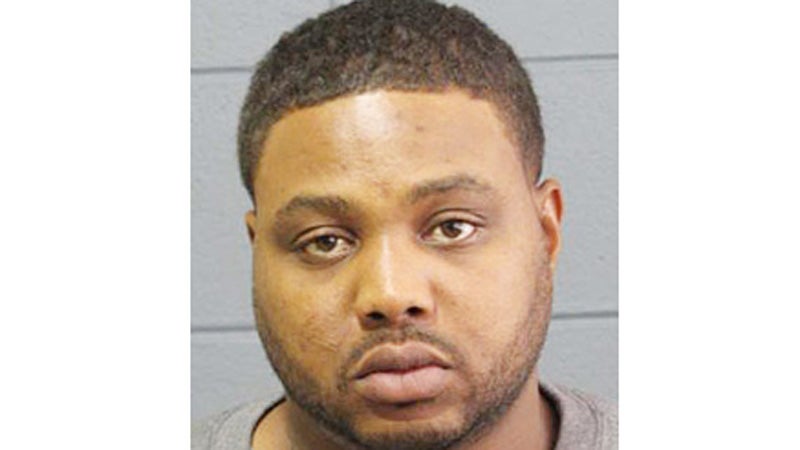Louisiana America 250: Group poised to tell of state’s role in American Revolution
Published 11:12 am Thursday, August 22, 2024

- Four persons who will be involved in helping the country celebrate its 250th birthday in 2026 are, from left, state Rep. Michael Bayham of Chalmette, Russ Godwin of Lake Charles, Rosie Rios of San Francisco and Rae Gremillion of Lafayette. (Special to the L'Obervateur)
|
Getting your Trinity Audio player ready...
|
By Jim Beam
The United States will celebrate its 250th birthday on July 4, 2026, and an organization called Louisiana America 250 will help tell this state’s involvement in the American Revolution that led to the country’s independence.
Russ Godwin of Lake Charles, state president of the Sons of the American Revolution and secretary of Louisiana America 250, has a key role in helping tell the Louisiana story. The state organization’s website is https://america250la.org.
The Sons of the American Revolution honors Revolutionary War patriot ancestors by promoting patriotism, serving communities and educating and inspiring future generations about the founding principles of the country.
Godwin presented a Certificate of Commendation to the City of Lake Charles in recognition of exemplary patriotism in displaying the American flag. Mayor Nic Hunter accepted the certificate at a meeting of the Mayor’s Armed Forces Committee.
Al Cochran, a veteran of Vietnam and a member of the mayor’s commission, was recognized as the newest SAR member. The local chapter’s website is https://www.oliverpollocksar.org/.
Godwin said he first joined the Sons of the American Revolution by helping his father, the late 14th Judicial District Judge Fred Godwin, complete his application for membership. Russ, his son Russell and his dad all joined at the same time after proving their lineage.
Godwin is Lt. Gov. Billy Nungesser’s appointee on the Louisiana America 250 commission and Nungesser is also a commission member.
Former state Rep. Tanner Magee, R-Houma, sponsored House concurrent resolutions at the 2022 and 2023 regular sessions of the Legislature that created Louisiana America 250.
Earlier this year, the Legislature authorized a new standard issue Louisiana license plate for 2025 and 2026 commemorating Louisiana America 250.
Michael Bayham of the state House of Representatives is chairman of the commission. Robert Freeland of Granaderos y Damas de Galvez, a nonprofit civic-patriot organization, is vice chairman. Michael McKnight of Louisiana State Museums is treasurer.
Rosie Gumataotao Rios, former treasurer of the United States, is chairperson of America250 that held its state and territory meeting July 9-11 in Washington, D.C.
The America250La website begins to talk about the Louisiana Colony’s involvement in the American Revolution when New Orleans merchant Oliver Pollock in 1775 began to secretly support America’s rebellion against the British.
In August of 1776, Gen. Charles Lee sent two Continental Army officers to request supplies from Louisiana Spanish Gov. Luis Unzaga y Amezaga in New Orleans.
On Sept. 19, 1776, the Spanish crown issued a royal order replacing Gov. Unzaga with Col. Bernardo de Galvez as governor of Louisiana. He became governor on Jan. 1, 1777.
Godwin said Galvez led the efforts of Spain to aid the American colonists against Great Britain. He recruited an army of 7,500 men made up of Spanish, French, Cajun, African American, Canary Islanders, Mexicans, Cubans, Native Americans and Anglo-American forces.
During the war, Galvez and his troops defeated the British at battles in Baton Rouge, Natchez, Mississippi, Mobile, Alabama, and Pensacola, Florida. The Regimiento de Luisiana also operated in what are today Arkansas, Missouri, Illinois and Minnesota.
Congress made Galvez an honorary citizen of the United States in 2014.
Oliver Pollock was named by the Continental Congress in the winter of 1778 to be its agent in Louisiana.
On April 12, 1779, France and Spain signed the Convention of Aranjuez that provided an offensive alliance against Britain. Spain declared war against Great Britain on June 21, 1779
Galvez left New Orleans on Aug. 27, 1779, with a regiment of 1,400 Louisiana regulars that included Whites, free Blacks and Native Americans. The regiment defeated British forces at Baton Rouge.
On March 14, 1780, in an attempt to continue capturing British holdings in the West Florida colony, Galvez’s unit took Mobile after a month’s long siege.
Galvez’s regiment captured Pensacola from the British on May 8, 1781, culminating the Spanish conquest of West Florida.
America250la said it will continue to update and complete Louisiana’s involvement in the American Revolution.





